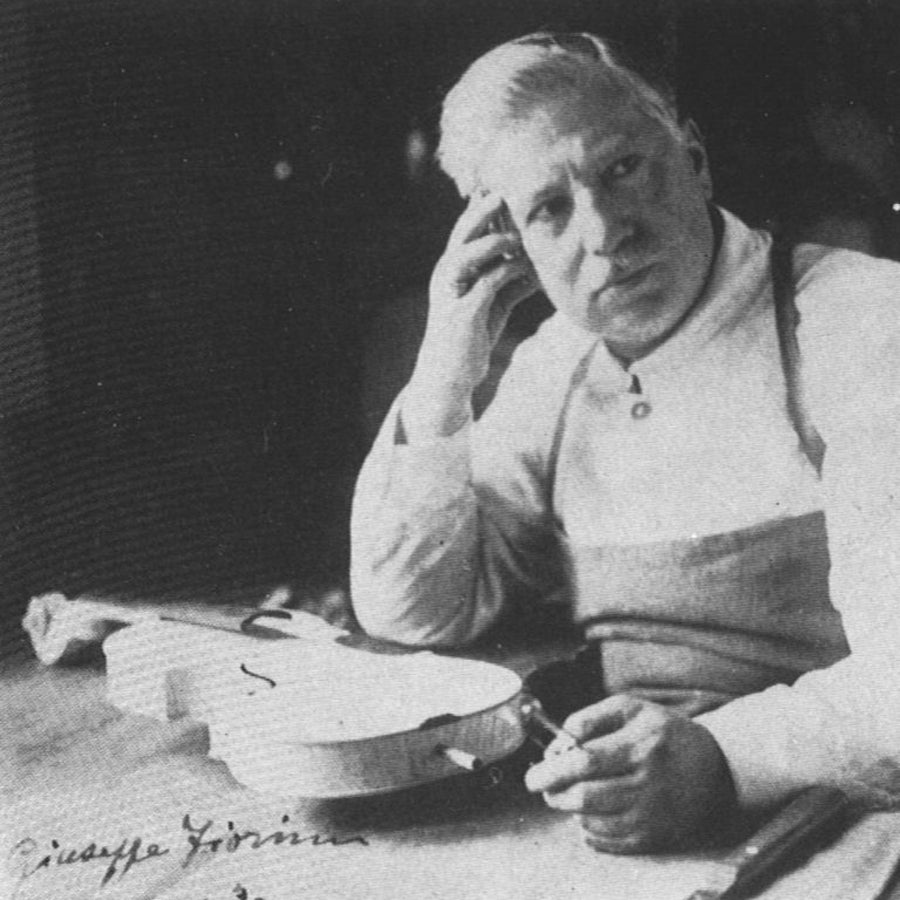
Giuseppe Fiorini
Born in 1861 in Bazzano, west of Bologna.
His father was Raffaele Fiorini (1828-1898), the founder of the Bolognese School.
Giuseppe also began working in his father's workshop at a young age, where Augusto Pollastri (1877-1927), Cesare Candi (1869-1947), and Armando Monterumici (1875-1925) all worked, and it is believed that many instrument makers from Emilia came and went.
Giuseppe opened his own workshop in Bologna in 1885 and won prizes at exhibitions in 1881 and 1888.
He later married the daughter of Andreas Rieger (1836-?), a well-known string instrument maker and businessman in Mittenwald, and moved to Munich, Germany, where he began working with Rieger around 1889. [Rieger & Fiorini]
After Rieger retired in 1896, the company changed its name to Fiorini. He demonstrated his outstanding skills not only in instrument making but also in repair and restoration. He founded the German Association of Violin Makers and became its president. He also worked as a skilled dealer, becoming one of the most important makers in Central Europe.
Around 1912, he decided to move to another location to concentrate on string instrument making again, and during World War I (1915) he moved to Zurich. His future successor, Ansaldo Poggi (1893-1984), learned string instrument making from Giuseppe during his time in Zurich.
Around 1920, Giuseppe returned to Italy with the intention of starting a violin-making school that would make the most of Stradivari's tools and belongings, which he had purchased from Marquis Paola della Valle, the successor of Count Sarabue. From 1923, he traveled to Rome, Florence, Turin, and Bologna, and in 1930 he donated Stradivari's belongings to the local government of Cremona, with the dream of founding a school there. *During his time in Rome, he worked with Fernando Sacconi (Simone Fernando Sacconi 1885-1974), who would later become a leading authority on Stradivari studies.
Unfortunately, Giuseppe passed away before his dream could come true, but in 1938 a violin-making school was founded in Cremona.
Giuseppe's instruments have labels from the various places he lived in, including Munich, Zurich, Rome, and Bologna, and they are now highly popular and highly regarded for their varnish that incorporates the essence of each place, their meticulous craftsmanship, and their excellent acoustics.
He died in Munich in 1934 (age 73).
Citation《Liuteria Italiana I》《The Brompton's Book of Violin and Bow Makers》
Choose options

